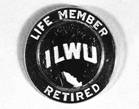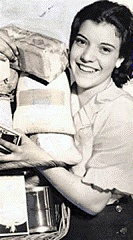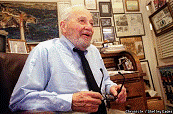Investigating U.S. History


“I think we're suffering from what I call ‘National Alzheimer's Disease.' That means there's no memory of yesterday.”
-- Studs Terkel
“In this matter I am an almost total sceptic... Old men drooling about their youth - No.”
-- A.J.P. Taylor on oral history interviews
Select a document from The Oral Record that you find particularly interesting and that adds to your understanding of the strike and the period. Post on the discussion board five paragraphs analyzing the information in the document.
Questions you may wish to consider:
Come up with your own questions and be sure to give reasons for any of your inferences. Respond to the analyses of at least two of your classmates, focusing on those statements with which you particularly agree or disagree.

“In 1928 we came out to Los Angeles. Times were already bad in rural New York, although this was still before the big crash. In '29, of course, the stock market crash hit and the Great Depression started. That killed whatever personal dreams I had. I'd planned to go to college, but my father was out of work. That's when I got active in the Communist movement...”
-- Jack Olsen, longshoreman

Soup for the Soup Kitchen.
“My neighbors were angry with my mother, because she fed hungry men at the back door. They said it would bring others, and then what would she do? She said, ‘I'll feed them till the food runs out...'”

Labor Arbitrator Sam Kagel
“Well, first, let me tell you what happened on the first day of the [general or sympathy] strike, which was July 16. If you know Market Street in San Francisco, imagine looking up at and seeing nothing. There were no autos – nothing.... I liked the 1930s. The 1930s were a great period. I was full of piss and vinegar and doing what I wanted to do”
“Unions obviously had demonstrated convincingly that by unified concerted action even with limited organization, they could paralyze an entire community.”
St. Sure was the shipowners' chief negotiator. Winter's thesis in the History Department at California State University, Sacramento makes extensive use of St. Sure's 1957 oral history.